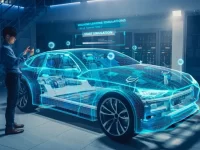The Future of CRM Integrations: Trends and Innovations

Customer Relationship Management (CRM) systems have become essential tools for businesses aiming to build and maintain strong relationships with their customers. However, as technology evolves and customer expectations rise, the future of CRM integrations is poised to undergo significant transformations. Emerging trends and innovations are set to redefine how businesses leverage CRM systems to enhance customer experience, streamline operations, and drive growth. Here’s a look at the key trends and innovations shaping the future of CRM integrations.
1. AI and Machine Learning Integration
- Predictive Analytics:
Artificial Intelligence (AI) and machine learning are revolutionizing CRM systems by enabling predictive analytics. This allows businesses to anticipate customer needs, personalize interactions, and identify potential issues before they arise. - Enhanced Customer Insights:
AI-powered CRMs can analyze vast amounts of data to provide deeper insights into customer behavior, preferences, and buying patterns. These insights enable more targeted marketing campaigns and personalized customer service. - Automation:
AI-driven automation can handle routine tasks such as data entry, follow-up emails, and scheduling, freeing up human resources to focus on more strategic activities. This not only increases efficiency but also improves accuracy.
2. IoT Integration
- Real-Time Data:
The Internet of Things (IoT) enables CRM systems to gather real-time data from connected devices. This data provides valuable insights into how customers use products, allowing businesses to offer timely support and personalized recommendations. - Predictive Maintenance:
For industries that rely on equipment, IoT-integrated CRMs can predict maintenance needs based on real-time usage data, reducing downtime and enhancing customer satisfaction.
3. Enhanced Mobility
- Mobile-First CRMs:
With the increasing reliance on mobile devices, future CRM systems will be designed with a mobile-first approach. This ensures that sales and customer service teams can access critical information and perform tasks on the go, enhancing productivity and responsiveness. - Augmented Reality (AR):
AR integration in mobile CRMs can provide immersive customer experiences. For example, sales representatives can use AR to showcase products in a customer’s environment, making the sales process more interactive and engaging.
4. Advanced Integration Capabilities
- Unified Customer View:
Future CRMs will offer more advanced integration capabilities, enabling a unified view of customer data across various platforms and touchpoints. This holistic view ensures consistent and informed interactions with customers. - Seamless Ecosystem Integration:
Businesses will increasingly integrate CRMs with other enterprise systems such as ERP, marketing automation, and customer support platforms. This seamless integration enhances data flow and operational efficiency.
5. Blockchain Technology
- Enhanced Security:
Blockchain technology offers enhanced security features for CRM systems. It ensures that customer data is tamper-proof and securely stored, which is crucial for maintaining trust and compliance with data protection regulations. - Transparent Transactions:
Blockchain can provide transparency in customer transactions and interactions, building trust and enabling customers to verify the authenticity of their interactions with the business.
6. Voice and Chatbot Integration
- Voice Assistants:
Integration with voice assistants like Amazon Alexa and Google Assistant can make CRMs more accessible and user-friendly. Sales and support teams can use voice commands to retrieve information and perform tasks, improving efficiency. - Chatbots:
Advanced chatbots integrated with CRMs can handle customer inquiries in real-time, providing instant support and freeing up human agents for more complex issues. These chatbots can learn from interactions to continuously improve their responses.
7. Personalization at Scale
- Hyper-Personalization:
Future CRM systems will leverage data from various sources to deliver hyper-personalized experiences. This includes tailored product recommendations, personalized content, and customized marketing messages based on individual customer preferences and behaviors. - Customer Journey Mapping:
CRMs will increasingly focus on mapping the entire customer journey, identifying key touchpoints and optimizing interactions to enhance the overall customer experience.
The Cobalt Advantage
As the landscape of CRM integrations evolves, businesses need tools that can keep up with these advancements. Cobalt, a co-pilot for engineering teams, is designed to simplify the process of building and managing native product integrations for all customers from a single SDK. Cobalt enables teams to launch integrations and new workflows in days rather than months, without the hassle of writing boilerplate code, managing tokens, configuring user settings, and maintaining APIs. With support for over 120 API integrations across various applications such as CRM, ticketing, ERP, sales and marketing, HR, communication, CDP, and more, Cobalt is at the forefront of enabling businesses to harness the future of CRM integrations. By leveraging Cobalt, businesses can stay ahead of the curve, ensuring they are well-equipped to meet evolving customer expectations and drive growth in an increasingly interconnected world.







